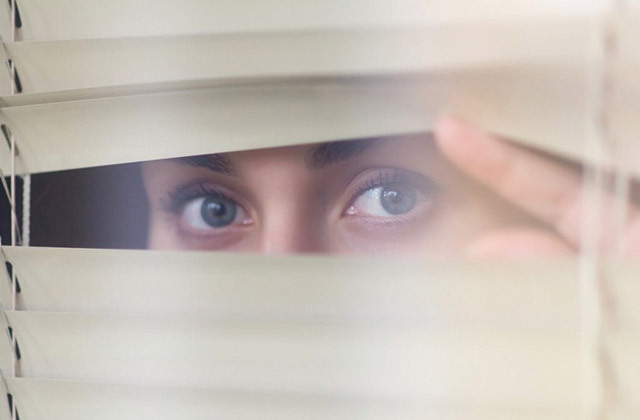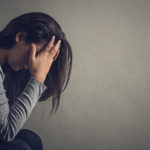“Health” and “illness” are contrasting terms. They can be used in physical or in mental context. We know that physical exercise done on a regular basis keeps us healthy. Mental exercise also keeps us mentally healthy. Just like after doing physical exercise we need rest, after mental exercise the mind also needs rest. But we hear the term “physical rest” frequently. The term “mental rest” is rarely used. No doubt then that as mental activities have increased with industrialisation, stress has increased. This stress results from our inability to allow our mind to become inactive or relaxed for even a short time which has been indicated also by a walk in clinic Hamilton after I talk to a Doctor.
Some people believe that our brain becomes inactive when we sleep. If that were so then we should not have any dreams. Dreams are evidence that our mind remains active, even when we are asleep. This simply means that our mind is active 24 hours a day without any rest at all. Just imagine how our bodies would behave if we were to go through 24 hours of physical activity.
Although research may show that 30% of mental illness may occur without a trigger of stress, it also shows that a majority – 70% – of mental illnesses occur with stress. The research may have failed to look at the other 30%, mentally ill who may not be ‘acknowledging’ stress at a given moment. This gives us a pessimistic view of mental illnesses. We are made to believe that we can do nothing about them. We are also told that mental illnesses occur because of our genes, our upbringing, our personality, our temperament, our lifestyle and we can do nothing about them. Stress or no stress, we are told, if we have all these factors loaded in our personal history, we are prone to have a mental illness. Some psychiatrists adhere to this belief strongly. This belief is then put across authoritatively as the “gospel truth” of science. Naturally, this brings up a sense of low self-esteem and helplessness in the person who is suffering with the illness. We are then made to believe that medications are man-made answers to mental illness, which is a curse of nature.
Prayer, which was until recently considered unscientific, has now been shown to have beneficial effects on patients.1 Similarly, the current belief in psychiatry is that mental illnesses can be treated by medical professionals only and the person who is mentally ill has no control over their lives. The medical system works in a way in which the doctors themselves have limited choices other than prescribing drugs. The patient has no choices worth mentioning. From the legal perspective, a person who is mentally ill is considered not capable of taking any responsibility for their actions. This is one of the most unfortunate aspects of mental illnesses. People who are mentally ill also have a sense of responsibility in many areas of their lives.
The role of emotions in mental illnesses has been totally ignored by scientists. Yet researches do show that separation from mother,2 losses3 – including deaths,4 traumatic events, especially when they occur over the previous three months5 can trigger mental illnesses. What has been looked at is the history of such events in a person’s life. What is ignored is the emotional upheaval it causes in a person’s body and mind. Emotional expression ameliorates the effects of trauma.6 Repetitive upheavals in the body are simply not forgotten. Release of emotions by emotional expression explains the role of counselling and confession. We tend to believe, erroneously, that everything will settle with time. Things do settle with time – but not everything. It is these issues and their emotional effects, that cause mental illnesses and psychosomatic illnesses. It is obvious that whenever we undergo any emotional experience, our nervous and hormonal systems are shaken-up. The nervous system and the hormones together control the activities of various parts of the body. If the neurohormonal expression is allowed to go through completion, a physiological calmness occurs in the body. This has a scientific basis.7
For people who attend church regularly, a common experience is the sense of calmness on entering a church. Coupled with music, incense and sermons spoken in a low, soft tone, a sense of calmness dwells on the person. There is scientific evidence to suggest that going to church helps a person remain healthy.8 More interesting is the fact that there is little research to state that music or aromatherapy help to bring about mental health. Yet experience shows that they have a calming effect. Only recently have papers started to be published in scientific journals bridging the gap between spirituality and science.9 It has now been researched that people who are religious in orientation have a lower rate of strokes than those who are not religious.10
The whole area of mental illness is about losing a sense of freedom. When we find ourselves bound to emotional issues of our life, that we cannot rid ourselves of, we lose our freedom of thinking. This creates stress in our mind and our body bears the brunt of it. This loss of freedom brings up a sense of fear or a sense of helplessness. Both such feelings bring up a sense of insecurity. A person loses confidence in their own worth. Self-esteem becomes low. With lack of confidence and low self-esteem, comes poor decision-making. A person suffers with all these conditions when suffering with a mental illness. This changes the behaviour of the person. The behaviour is affected by the way the person feels and thinks. If the person feels fear for a long time, the chances of becoming phobic and paranoid increase. Withdrawal from social situations occurs. The family members observe the person to be unwell. Such a person is then asked to see a doctor. With the person’s self-esteem low, vulnerability increases. This does not mean however, that the person becomes totally irresponsible towards their own well-being. Many times the person wants to do ‘something’ to get better, but the health system has limited resources to offer much in terms of growth of the person, except medication. When a mentally ill person goes to seek help – confidence, self-esteem and sense of freedom are already lost. Instead of helping the person become independent, there is a tendency to make the person dependent on medication.
Medication plays its role in controlling the condition or state of illness. It does nothing to improve the quality of life permanently. To improve their quality of life, the person needs to take responsibility for their own well-being. This is encouraged in some of the organisations, which are being run by the sufferers themselves. GROW is an example of such an organisation. Are there any alternatives to medication in mental conditions? A doctor can only prescribe drugs to “control” the mental condition. The current trend in some other parts of the world is to encourage people suffering with mental illnesses to take responsibility for their own well-being, along with medication. Psychotherapy11 and self-help is encouraged. The usage of medication in such situations is minimised or eliminated.
In psychiatry, we know that the suicide rate among physicians is higher than in the general population and psychiatrists are at a greater risk among physicians, than other specialists.12 Research shows that psychotherapy is more economical than medication alone in treating mental illness.13 Conditions like schizophrenia are also being treated without medication in some parts of the world.14 It is also a known fact that the more positive the attitude we have, the more balanced are the chemicals in our body.15 This would be more acceptable for those who see the positive role of religion on mental health. Some authors have suggested that the medicine of the future is going to be “prayer and Prozac.”16 Mental health is a preventative activity. Do we need to suffer first before we take steps to deal with it? If we could only assume responsibility for our own mental health, we may not have to suffer. The best medicine in this case is certainly prevention.
We live in a free society. The freedom to suffer is also one kind of freedom. We also have the freedom to look for answers to minimise our suffering.
REFERENCES
1. ASTIN, J.A., (2000) Prayer, Other Forms of ‘Distant Healing’ seem to have Positive Effects. Medscape. Annals of Internal Medicine 132: P.903-910.
2. HARRIS T., BROWN G. W., BIFULCO A., (1986) Loss of Parent in Childhood and Adult Psychiatric Disorder: The Role of Lack of Adequate Parental Care. Psychological Medicine 16: P.641-659.
3. BROWN G. W., HARRIS T., (1978) Social Origins of Depression. Tavistock, London.
4. BIRTCHNELL J., (1970) Depression in Relation to Early and Recent Parent Death. British Journal of Psychiatry 116: P.299-306.
5. BROWN G. W., BIRLEY J. L. T., (1968) Crises and Life Changes and the onset of Schizophrenia. Journal of Health and Social Behaviour 9: P.203-214.
6. KELLER, S.E., SHIFLETT, S.C., SCHLIEFER, S.J. & BARTLETT, J.A. (1994) Stress, Immunity and Health. Handbook of Human Stress & Immunity. San Diego: Academic. P.217-244.
7. CHADHA, P. K., (2000) Drugless Psychiatry – Physiological Basis of Clinical Experiences. Paper presented in 6th Conference – Innovations in Psychiatry, London, April 2000.
8. COMSTOCK, G.W., PARTIDGE, K.B., (1972) Church Attendance and Health. Journal of Chronic Diseases 225: P.665-72.
9. SLOAN, R.P., BAGIELLA E., POWELL T., (1999) Religion, Spirituality and Medicine. Lancet 353: P.664-67.
10. KOENIG, H.G., (1997) Is Religion Good for your Health? Haworth Pastoral Press, N.Y.
11. POMERANTZ, J.M. (1999). Focused Psychotherapy as an Alternative to Long Term Medication. Drug Benefit Trends 11 (7) : P.2, 5.
12. KAPLAN, H.I., SADOCK., B.J., (1998) Synopsis of Psychiatry – 8th Edition – B.I. Waverly Pvt. Ltd., New Delhi. P.865.
13. TALLEY P. F., STRUPP, H. H., BUTLER S. S., (1994) Psychotherapy Research and Practice, Harper Collins: London.
14. McKENZIE, C.D., & WRIGHT, L.S., (1996) Delayed Post-Traumatic Stress Disorders from Infancy – The Two Trauma Mechanism. Harwood Academic.
15. MOON, A. M., (2000) Positive Psychology Halved Depression in Kids. Clinical Psychiatry News. 28 (5): P.29.
16. MATTHEWS, D.A., LARSON, D.B., (1997) Faith and Medicine: Reconciling the Twin Traditions of Healing. Mind/Body Medicine : 2: P.3-6.
Article Source: http://EzineArticles.com/97198


